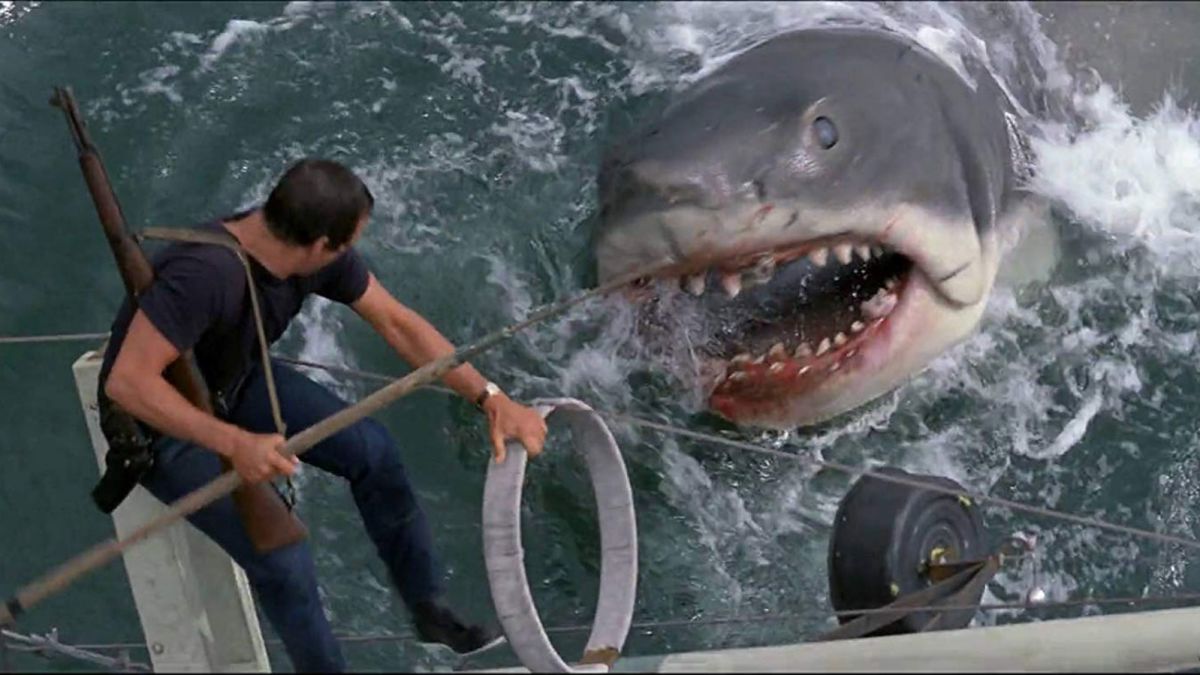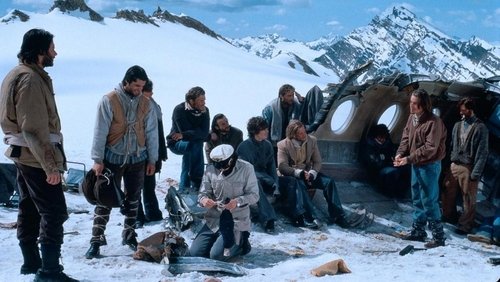9am Lecture with Tim Leandro
I have added in photos to explain the lecture
I have added in photos to explain the lecture
What is Drama?
- Protagonist - Who the Story is about. Who the story follows. Doesn't have to be a good guy.


Left: Sigourney Weaver as the Bad-Ass female hero, Ellen Ripley in Alien (Ridley Scott, 1797), Right: Ryan Reynolds as the Anti-Hero, Wade Wilson A.K.A Deadpool in Deadpool (Tim Miller, 2016)
- Antagonist - The force against the protagonist. This doesn't have to be a person.
- Jaws (Steven Spielberg, 1975) - The Great White Shark is the antagonist

Jaws - Brody and the shark
- Dr No (Terence Young, 1962) - Dr No is the antagonist (opposite protagonist: James Bond)

Dr No in his Lair in Dr No
- Alive (Frank Marshall, 1993) - The mountain and the forces are the antagonists.

The Team after the crash in Alive
- Conflict - Protagonist and Antagonist must be in conflict. A drama must have this!
- Change - The protagonist must change from the start to the end of the drama. It is Essential!
Drama and the Greeks
- Drama is an invention.
- Almost 500bc in Ancient Greece.
- It happened around the same time as democracy began.
- Drama is not natural - It was created.
- Drama - Acting stories out.
- Comedy and Tragedy
- All actors were male and wore masks
- Tragedy evolved into Modern Drama
- Tragic Flaw and Tragic Hero - Become the Dramatic Flaw and the Dramatic Hero
Aristotle
- Aristotle - Script Guru, 300bc, philosopher
- Modern Script Writers
- Robert McKee
- Syd Field
- John Yorke
- Chris Vogler
- Codes of what scriptwriting is
- Aristotle and Poetics
- the term 'drama': i.e that the poets imitate people doing things (Aristotle, Poetics, 2.3)
- We take delight in viewing the most accurate possible images of objects which in themselves cause distress when we see them (e.g. the shapes of the lowest species of animal, and corpses). The reason for this is that understanding is extremely pleasant, not just for philosophers but for others too in the same way, despite their limited capacity for it. This is the reason why people take delight in seeing images; what happens is that as they view them they come to understand and work out what each thing is (e.g. ‘This is so-and-so’). If one happens not to have seen the thing before, it will not give pleasure as imitation, but because of its execution, or for some other reason. (Aristotle, Poetics 3.1)
Mimesis
- Mimesis - realism, imitation, truth, recognition of truth
- Mimesis: 'the imitative representation of nature of human behaviour' (Collins English Dictionary)
- Truth is an art of mimesis
Hippolytus

- Gods, monsters, supernatural
- Still has mimesis in it
- Recognisable human tragedy
Blade Runner (Ridley Scott, 1982)
/cdn.vox-cdn.com/uploads/chorus_image/image/56969479/MV5BYjg1Yjk1MTktYzE5Mi00ODkwLWFkZTQtNTYxYTY3ZDVmMWUxXkEyXkFqcGdeQXVyNjUwNzk3NDc_._V1_.0.jpg)
- Deckard - recognise his humanity
- Mimesis in movies today
- "Everyman"
Plot
- Made up of events and actions
- Beginnings, Middles and ends - Artistotle
- Cause and Effect
Character

Aragorn (Viggo Mortensen) in LOTR (Peter Jackson, 2001-2003) - He is a really good example of a character who has an impressive character ARC, his character is complex but at the same time understandable. Is he the protagonist of the film?
- A person who does things
- Revealed through actions
- CHOICES
- Protagonist Cannot be Passive!
- Fatal Flaw - tragic hero
No comments:
Post a Comment